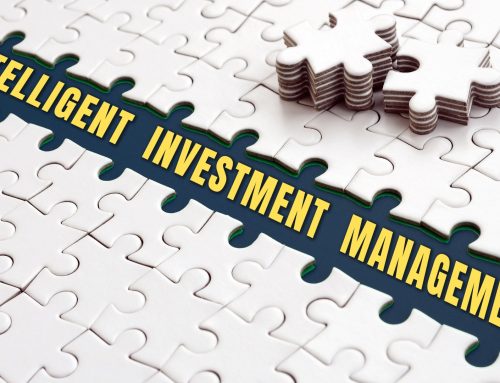
Thoughts On: Corrections, Crashes, Recessions, and Inflation
On Tuesday, August 6, I had two separate conversations with two very different people: a client with a million-dollar portfolio and a friend who has some Bitcoin. And they asked the same question, “What should I do?”
I had not been paying attention to the world since Thursday, so my first question was “About what?” They replied, “The Market!” and caught me up on all the terrifying things that were happening.
Once I was up to date my immediate (and terse) response was “Nothing, don’t worry about it.” They found that less than satisfactory and asked me to elaborate just a little bit. They found my elaboration useful, so I hope others will also.
The first thing is to check your plan. Have you protected yourself from market drops, corrections, and crashes by having a cash cushion as part of your portfolio? Have you set aside money for major expenditures for the next 3-5 years in a money market fund or laddered CDs? Investment money, stock and bond market money should (must?) be money you know you won’t need for 3-5 years. If that’s not the case, then now is a good time to fix that.
If you don’t have a plan, make one. Now.
Remember stock markets are auction markets; owners of stocks are willing to sell at a certain price; and buyers are willing to purchase at a price. Nothing gets bought or sold unless both parties agree to it. Why some people are willing to buy something someone else is desperate to sell (or vice versa) is another topic for another time; the point is prices are negotiated, and price swings of +/- 10% are in the negotiation. If I’m selling my house for $100,000, I’m not going to be offended if you offer me $90,000 (especially if it’s been on the market for a while); nor would it be outrageous for you to offer me $110,000 (if you are in a hurry to buy a house.) That’s a 20% (+/- 10%) swing in price that is rational but unpredictable. Stock prices can swing as much for good reason, or for no reason, and it doesn’t really tell you much when they do.
The problem is the first 10% drop in stock prices could be a short-term correction and a buying opportunity, or the first step in a crash and a sign to get out of the market. There’s no way of knowing. It is unknowable. Put a pin in that for a moment.
Sometimes market crashes coincide with economic recessions; it happens enough that people think the market crash caused the recession (or maybe the recession caused the crash, I can never remember.) But correlation and causation are two different phenomena. I’m not going into the causes of recessions, or market crashes. People only know what caused the recession after the fact when it’s too late to prevent it from happening.
But even without knowing what causes them, a lot of people try to predict recessions. One of the more popular methods of prediction is the inverted yield curve, but I’ve recently learned about “stripper” and “lipstick” recession indicators. Apparently, when men stop paying cash tips to strippers, and women only buy lipstick instead of a full range of cosmetics, it means a recession is looming. It’s probably as good as anything the economists have produced, which means not very good at all. Suffice to say, they are not something we are relying on…😊. Also, note the yield curve has been inverted for two years with no official recession. Indicators are just that, indicators. Not the word of God.
I prefer recessions to inflation because recessions are inherently self-correcting. Inflation is inherently self-reinforcing. In a recession, people spend less, work a second job, pay down debt, and generally work to improve their financial positions. But after a period of doing this successfully, they start spending a little more… and borrowing a little more… and living a little better… and bring the recession to an end. With inflation, the opposite is true. Inflation encourages people to borrow more and spend more TODAY because prices will only be higher in the future. Inflation usually ends only after suffering a fair bit of pain. Real pain happens when there is recession AND inflation (such as the stagflation of the 1970s). That just sucks. And note, economic conditions can be started, prolonged, mismanaged, and worsened through federal tax, monetary, regulatory, and economic policies. Think the Great Depression.
With all that as background; what is happening today? From the opening of the markets on Wednesday, July 31, to the closing of the markets on Monday, August 5, the DJIA was down 5%, the NASDAQ was down 8%, and the S&P500 was down 6%. This was heralded as a “Global Market Meltdown.” It might turn out to be one, but not yet. We just don’t know. Note the markets are still up 10% or so year-to-date.
A jobs report came out which some people think might suggest a recession is looming. It’s another indicator, but it is still not definitive. The same folks that were worried about inflation just last month are now convinced of recession. The truth is, nobody knows.
The yen carry trade fell apart. If you don’t know what that means, don’t worry about it. It will ripple through the global markets, but there is nothing you can do about it.
Some air has gone out of the AI stocks. There is a lot of air still left.
What should you do?
Check your plan. If you own stocks, make sure you own companies that are profitable and growing. Own companies that will be worth more five years from now than they are worth today. Make sure they are currently selling for less than they are worth. (This does NOT describe the Magnificent 7. If you own those then I don’t know what to tell you except “Good luck.” We don’t own them.)
What else should you do? If you think the odds of a recession are high then make more, spend less, and pay off your debt. If your debt is paid off, then build up your savings and emergency accounts, and start identifying those profitable companies I talked about earlier. Save up cash in case you get a chance to buy more of those good companies you are finding.
If you think the odds of inflation are high, then borrow money to buy hard assets that appreciate with inflation.
What are we doing? Sticking to our plan. We are holding the profitable, growing, cheap companies, selling the ones that aren’t, and holding the proceeds in cash expecting to buy the companies we want at lower prices at some point in the future. We’ve been wary of recession for some time now so we are more likely to sell than buy at this point, but if we find something spectacular AND cheap then we will put some money to work.
The opinions expressed are those of Tony Muhlenkamp of Muhlenkamp and Company and are not intended to forecast future events, guarantee future results, or offer investment advice.








